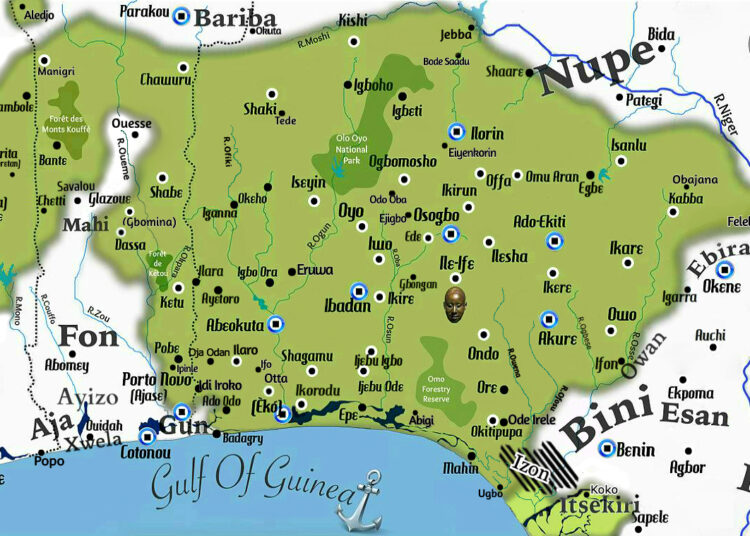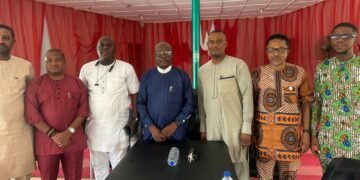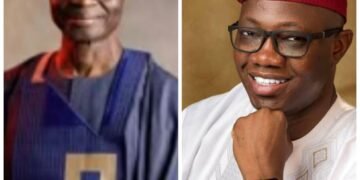Conflict is an inevitable aspect of human existence. From time immemorial, no society has been immune to it. What distinguishes progressive communities from regressive ones is how such conflicts are managed. Constructive conflict often leads to innovation, stronger institutions, and social growth. However, when handled poorly, conflict breeds enmity, destruction, and generational crises—issues that continue to plague many parts of Yorubaland today.
Recent reports of needless media spats among traditional leaders and public figures reflect a growing disunity in the region. It underscores a painful truth: there is a lack of love, mutual respect, and collaboration among many of those in leadership positions across Yorubaland.
It is especially disheartening to hear that some respected figures—including kings, elders, and clergy—now engage in open confrontations and avoid one another at public functions. Some are even reported to be keeping malice, a behavior unworthy of their revered positions. This sets a poor example for the people they lead. What message does it send to the younger generation? What hope does it offer for a peaceful and united future?
The Bible in 1 Timothy 6:11–12 offers a clear moral compass:
“But as for you, O man of God, flee these things. Pursue righteousness, godliness, faith, love, steadfastness, gentleness. Fight the good fight of the faith. Take hold of the eternal life to which you were called…”
These verses challenge all leaders—especially spiritual and traditional custodians—to rise above ego, pride, and politics. They are called to embody love, humility, and righteousness in both public and private life.
Divine Mandate and Obedience
Leadership is not merely a social role; it is also a divine calling. In Islam, believers are instructed to obey leaders who act justly and uphold righteousness. Surah An-Nisa 4:59 teaches:
“O you who have believed, obey Allah and obey the Messenger and those in authority among you…”
This reinforces the belief that with leadership comes accountability—not just to people, but to the Creator. When leadership is just, success follows. When it is driven by ego or vengeance, failure is inevitable.
Wisdom from Ifa: Good Character and Communal Responsibility
The Ifa tradition, a spiritual and philosophical system deeply rooted in Yorubaland, also offers profound guidance on leadership. According to Ifa:
- Balance between personal desires and community needs is essential.
Effective leadership requires a delicate equilibrium between ambition and service. Leaders should prioritize the well-being of their people, making decisions that uplift everyone—not just serve their own interests. - Importance of Character (Iwa):
Ifa emphasizes that iwa, or good character, is the foundation of true leadership. A leader must be honest, fair, compassionate, and wise. Titles, status, or position mean little without integrity. As the Yoruba saying goes, “Iwa l’ewa” — character is beauty.
Today, too many leaders act based on hearsay, or under the influence of conflict entrepreneurs—people who benefit from division and manipulate emotions to settle personal scores. Leadership should never be reduced to revenge missions against perceived enemies. That path only deepens wounds and destroys the fabric of communal trust.
A fragmented leadership weakens the region’s political influence and discourages meaningful development. When leaders are divided, external forces exploit those divisions. But when united, Yorubaland can stand as a beacon of peace, cultural pride, and progress.
Now more than ever, the region needs leaders who can rise above personal and political grudges and embrace the higher calling of service. The time for ego-driven rivalries must end. Our people deserve better, and the generations unborn depend on today’s choices.
This is a call to our kings: lead with wisdom.
To our clergy: preach love and unity.
To our elders: be bridges, not barriers.
As the timeless saying goes: “A house divided against itself cannot stand.”
Let us come together—not as rivals—but as partners in progress, guided by divine wisdom, the spirit of Iwa, and the shared responsibility of nation-building. Only then can we build a Yorubaland where peace reigns, development flourishes, and every citizen thrives.













